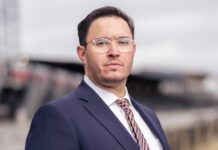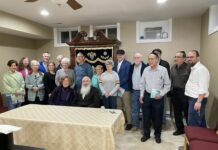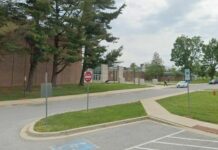
In collaboration with two churches, Hinenu Baltimore is exploring the concept of reparations and how they can work toward them as religious institutions.
The panel “Reparations through an Interreligious Lens,” set to take place on Thursday, April 25, is the culmination of efforts by the Color Us Love interfaith working group established by Hinenu, St. Matthew United Methodist Church and the Episcopal Cathedral of the Incarnation.
Panelists include Rev. Kay F. Albury of St. Matthew, Mark Bomster of Cathedral of the Incarnation and Mark Gunnery of Hinenu.
The three congregations were participants in the Institute for Islamic, Christian and Jewish Studies’ Congregational Leaders Fellowship, which is what connected them. Hinenu was one of two synagogues participating in the fellowship in 2023, along with Kol HaLev. Their colleagues included two Islamic mosques and seven Christian churches.
“We learned about having interfaith dialogues and building interfaith congregational relationships. The congregations also hosted open houses for other participants to come and experience a service at one another’s mosques, synagogues and churches,” Gunnery explained.
The idea to focus on reparations came from Hinenu congregant Maranda Kosten, who works in the film and theater industries outside of her involvement in ICJS.
“We had a culminating project that we had to pick a topic for. I was listening to NPR at the time, and they were talking about a reparations bill that failed to get passed in Congress at the time. I was just like, ‘It’s really never going to happen,’” Kosten said. “Then, I started thinking about how religious institutions shape cultural norms and the status quo. I posed the idea of having our group approach the issue from a religious perspective, not knowing where it was going to lead and having no idea that this amazing work would come out of it.”
Color Us Love first formed in spring 2023 and has been going strong since then, though the fellowship has long since ended. In addition to being interfaith, the group is also multiracial, though the focus of its reparations-related advocacy is on the Black community.
The subject of reparations for Black people, particularly descendants of enslaved people and victims of hate crimes like the Tulsa Race Massacre, has gained prominence over the past few years. The state of California formed a reparations task force in 2021, with Harvard University creating a reparations fund the following year.
But views on the subject vary greatly between communities. According to a 2022 study conducted by the Pew Research Center, 68% of adults in the U.S. do not support reparations for descendants of enslaved people. On the other hand, 77% of Black adults do support reparations, while 80% of white adults do not.
Kosten, though, believes that religious institutions like Hinenu have a role to play in fighting against injustice, which includes advocating for reparations.
“It’s a very loaded word, ‘reparations,’” she noted. “We started talking about the idea that reparations are not only a monetary thing, but about healing a rupture. And at the same time, if there’s a system that continually creates trauma, pain and poverty, that stems from a system that was put into place hundreds of years ago, there may need to be money involved.”
While neither of the mosques from that year’s fellowship participated in Color Us Love, as they had been assigned to other groups working on different projects, the Jewish and Christian members of the cohort consulted with Muslim members when putting together their research guide so that they could include their perspectives on reparations.
As a synagogue, Hinenu has been involved with anti-racist activism since its inception. Formerly known as Hinenu: The Baltimore Justice Shtiebl, it places a strong emphasis on social justice and community advocacy.
Gunnery cited the synagogue’s values statement, which reads, “As a Baltimore-based community, we recognize the city’s historic and current state of racial inequity and seek to help build a city where no communities are treated as disposable and everyone can prosper.”
For their part, Gunnery and Kosten studied the teachings of Maimonides and other Jewish scholars’ writings on racial justice and inequality, and how different denominations of Judaism approach those issues. Kosten also taught the other members of Color Us Love a wordless Jewish melody that they now incorporate into their presentations.
While Black people and Jewish people certainly have very different experiences with the history of slavery, Kosten noted that they do have some shared themes that offer a unique perspective on the issue of reparations.
“As Jews, we do understand collective, generational trauma,” she said. “I hope that people can understand reparations as part of repairing the world, not as handouts from the government. There’s a real need for repair in our country, and I hope people at this panel can explore and find their place in it.”







